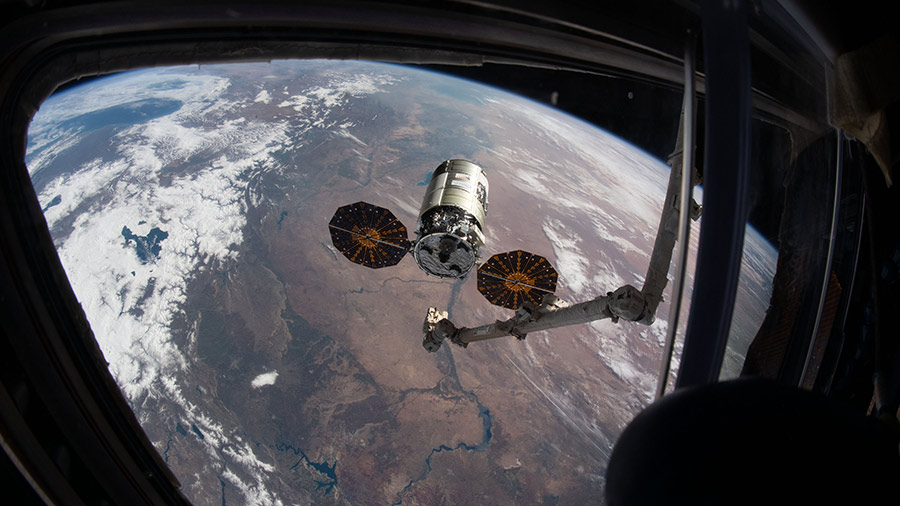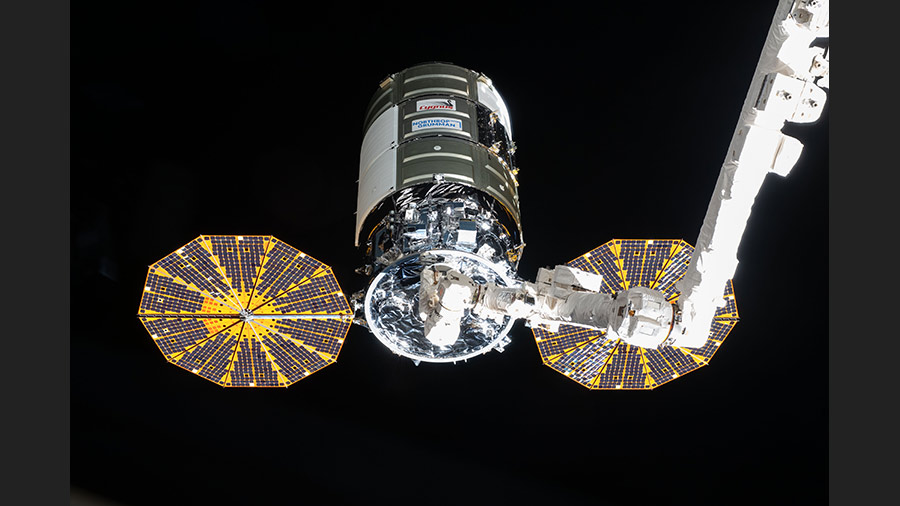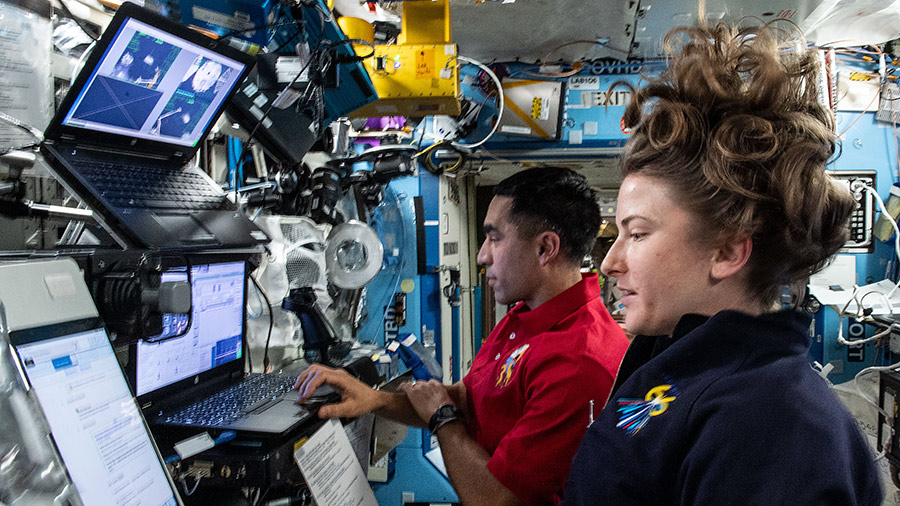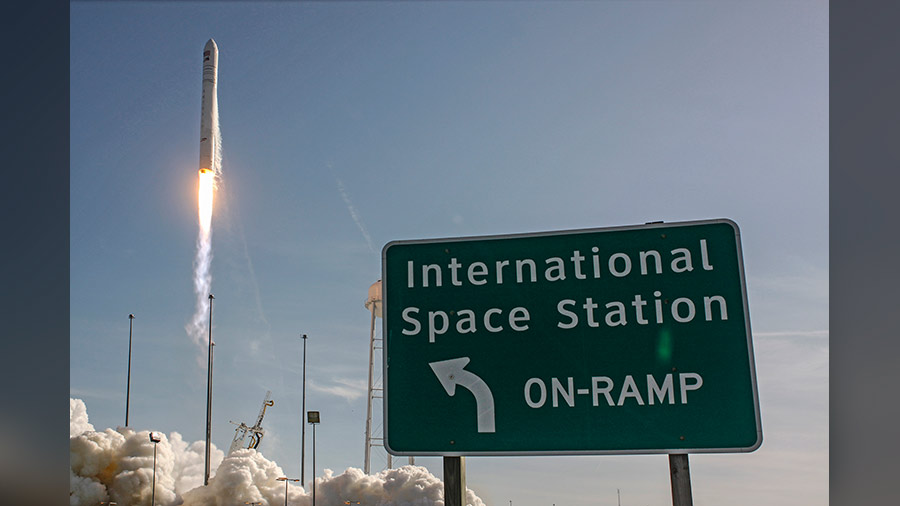NASA TV is Live Monday Broadcasting Cygnus Arrival at Station

Tune in to NASA television beginning at 3 a.m. EST Monday, Feb. 21 to view the capture of Northrop Grumman’s Cygnus spacecraft which launched Saturday at 12:40 p.m. on an Antares rocket from NASA’s Wallops Flight Facility in Virginia. At about 4:35 a.m., NASA astronaut Raja Chari will capture Cygnus, with NASA astronaut Kayla Barron acting as backup. After Cygnus capture, mission control in Houston will send ground commands for the station’s arm to rotate and install it on the station’s Unity module Earth-facing port.
This is Northrop Grumman’s 17th commercial resupply mission to the International Space Station for NASA. The Cygnus spacecraft is carrying a fresh supply of 8,300 pounds of scientific investigations and cargo to the orbiting laboratory.
The Cygnus spacecraft is named the S.S. Piers Sellers in honor of the late NASA astronaut who spent nearly 35 days across three missions helping to construct the space station.
NASA Television, the NASA app, and agency’s website will provide live coverage of the spacecraft’s approach and arrival beginning at 3 a.m.
Learn more about station activities by following the space station blog, @space_station and @ISS_Research on Twitter, as well as the ISS Facebook and ISS Instagram accounts.
Get weekly video highlights at: http://jscfeatures.jsc.nasa.gov/videoupdate/
Get the latest from NASA delivered every week. Subscribe here: www.nasa.gov/subscribe
Mark Garcia
Powered by WPeMatico







